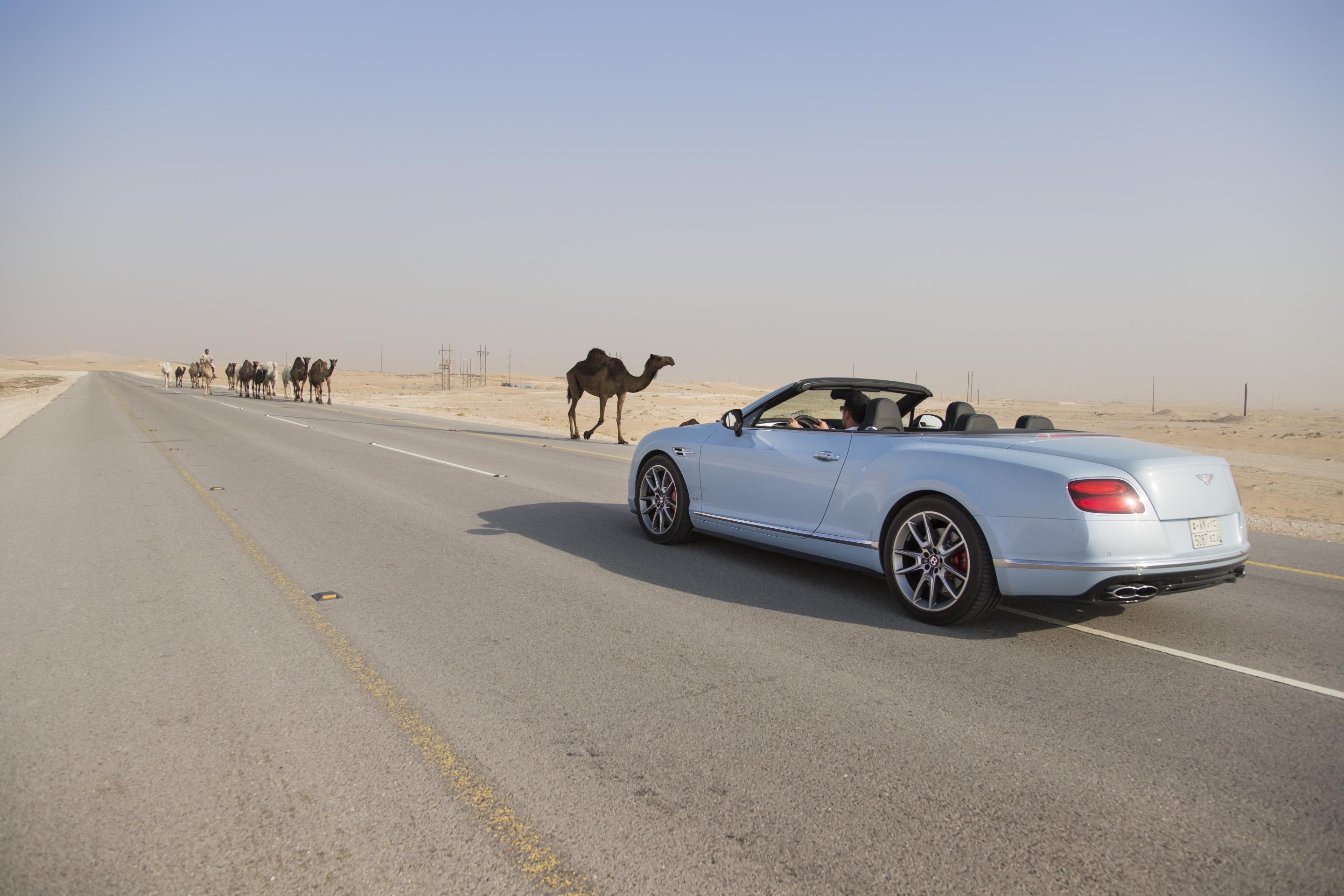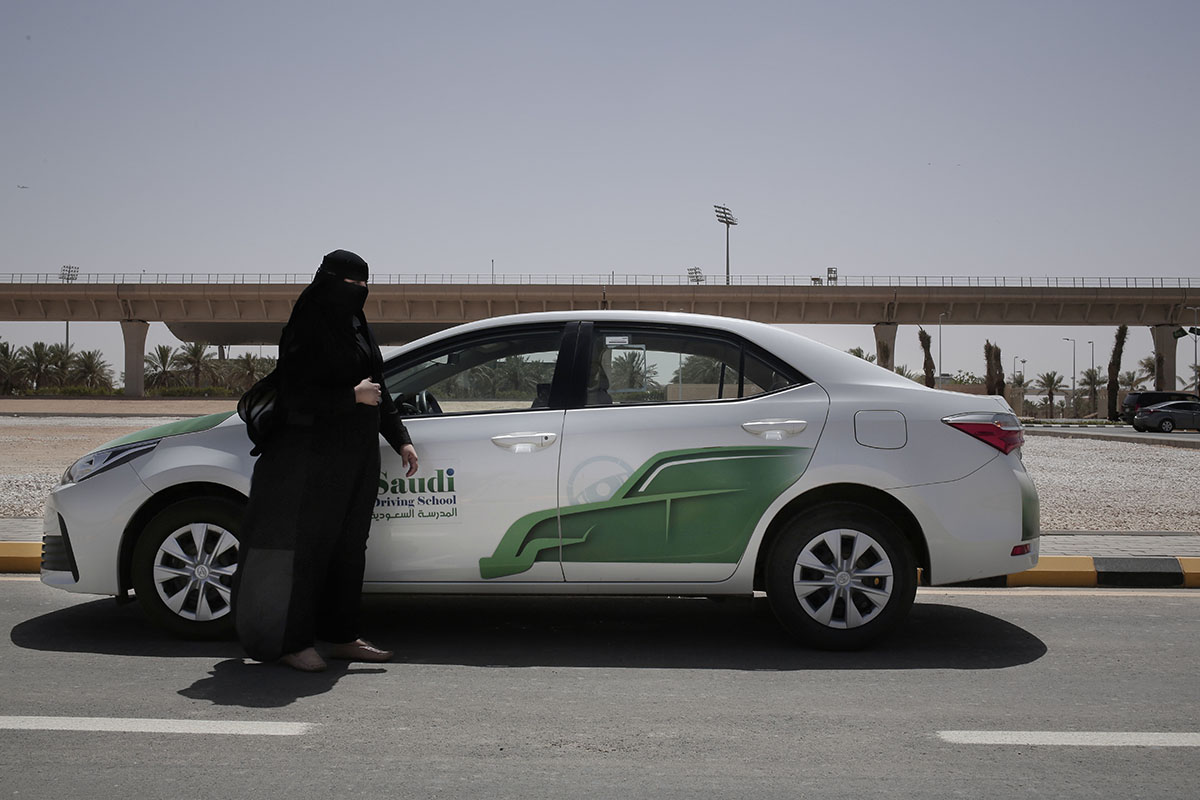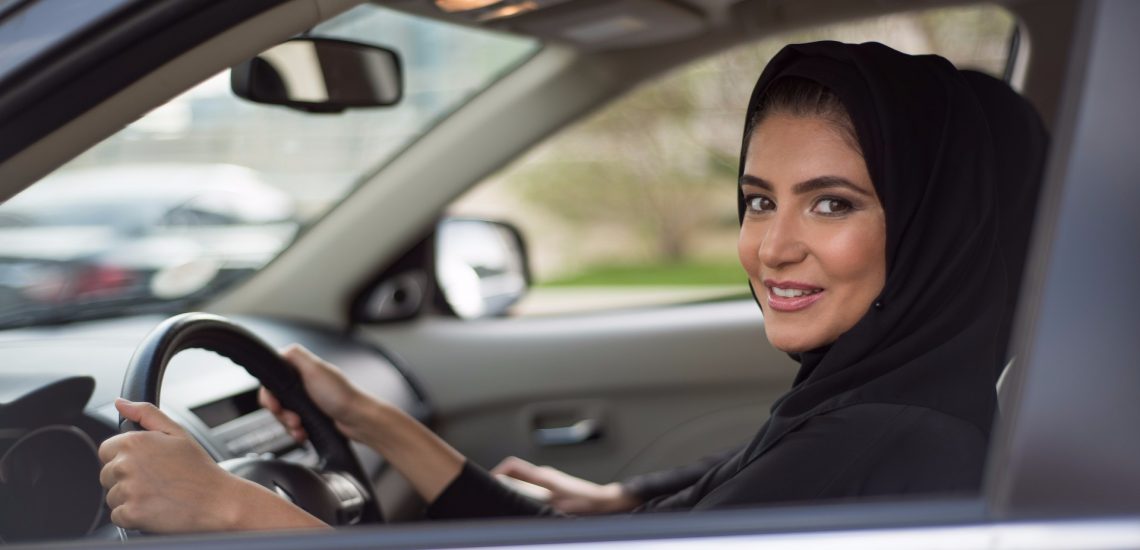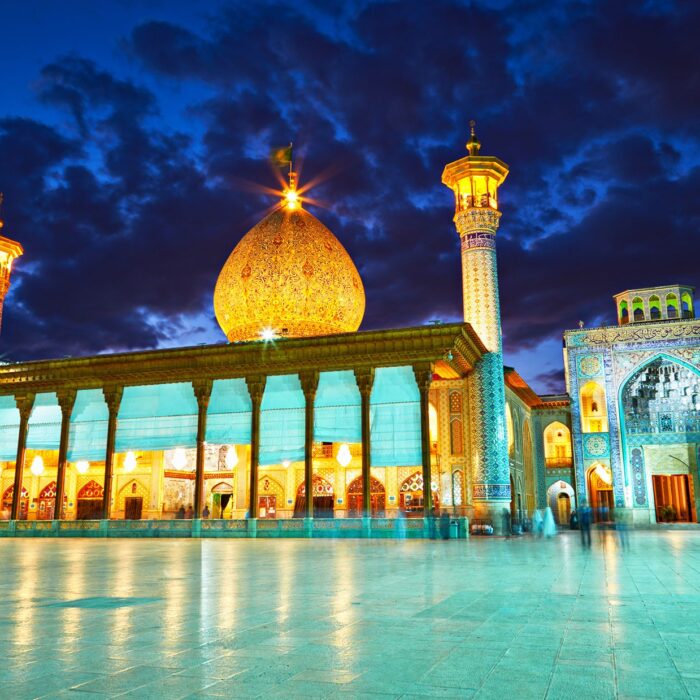Female drivers in Saudi Arabia
For a long time, Saudi Arabia was the only country where women were forbidden to get behind the car wheel. The forbidding was considered unfair and contrary to the norms of Islam, even wives of Prophet Muhammad were allowed to ride camels and horses. But in September 2017, Saudi King Salman bin Abdul Aziz Al Saud signed a decree to lift the ban on driving cars for women. Three months later, the ban on the driving motorcycles and trucks was lifted.
On Monday, June 4, 2018, the first female motorist in the country’s history got a driver’s license. It was issued by the General Directorate of Road Traffic in Saudi Arabia. This happened three weeks before the formal enactment of the royal decree. The traffic police posted a video on which the officer, after welcoming words and instructions, presents the license to the girl, and she thanks him with applause of the traffic police officers.
Giving the driver’s license to the first Saudi women who get behind the wheel in the kingdom, occurred in several cities.
The Saudi authorities allowed women, who have the license of other countries recognized by the kingdom, to exchange them automatically for Saudi one and start driving from the moment the permission came into force. Thus, since June 24, 2018, any female over the age of 18 years has the opportunity to get behind the car wheel (with a driver’s license, of course).
What the rights of Saudi women were before
It turns out that the car driving by a woman in Saudi Arabia was severely punished. If a woman was seen driving in a public place, she could be arrested by police officers or issued a fine for a large sum.
The prohibition of women getting a driver’s license was a symbol of their oppression in the conservative kingdom. Obviously, the country tries to improve its reputation in the international arena and expects that the reform will positively affect relations with the West countries. The ban on driving was a global symbol of women’s oppression in the ultra-conservative kingdom and damaged the country’s international reputation.
Saudi Arabia is a Muslim monarchy that lives according to Sharia law. Previously, country officials gave many arguments why women can’t drive a car. It was believed that men and women can’t get equal rights on the road. Some government officials said that with the driver’s license, women would cause discord in the family and have random sex. There was even a suggestion that driving damages ovaries and affects procreation.
In the 1990’s, several dozens representatives of gentle sex drove cars along the main streets of Riyadh. The action caused outrage in the conservative society of the country. Participants were detained by the police, they were released only after their husbands and fathers had promised that these women would no longer get behind the wheel of vehicles.
In 2011, the campaign for the right of women to drive cars got a new round – in June, law enforcement agencies recorded more than 70 cases of female driving, one of the activists – Shaima Jastaniah – was even sentenced to 10 lashes. The verdict, however, was reversed later.
Saudi women planned another mass protest in July 2013, but three days before the appointed date, the Ministry of Internal Affairs warned girls not to drive, and on the day of the action reinforced roadblocks were set up on all roads of Riyadh.
Also, women from Saudi Arabia launched several campaigns on social networks to get the right to drive cars. Despite the fact that there was no explicit prohibition for women to drive a car, only men could get a driver’s license.
For years, human rights activists have tried to get the right for women to drive. Those who drove the car illegally were arrested and sent to prison. Probably, the reform for the female half of the kingdom was due to Prince Muhammad bin Salman, the second in line for the throne. He is the second deputy prime minister, the youngest minister of defense in the world and the President of the Council for Economic and Development Affairs of Saudi Arabia. He conducts a long-term reform of the economy and public life of the country.

How will it be now?
Saudi Arabia can get a practical benefit from the women behind the wheel. Now it will be easier for women to get to work. Previously, many of them had to use a taxi or a personal driver. Because of the high cost of their services, it was easier for women didn’t work at all. Also, the number of gasoline consumers will increase.
A special committee, that was supposed to develop the reform before June 24, 2018, was established in the country. It had to elaborate issues related to behavior and decency. For example, all this time, the police were taught to communicate with women on the road so that it doesn’t violate the Muslim law. In an Islamic country this is an important point, since its residents have little contact with outsiders. It was also important to decide whether women were required to obtain a permit to drive from their fathers, husbands and brothers.
The royal decree said: “To adopt the implementation of the traffic rules and its executive rules, including the issuance of driving licenses, both to men and women, and to form a high-level committee of ministers to examine the necessary measures to enforce the rules.”
Automobile companies around the world were pleased with this news and congratulated the Saudi women.
So, in the official Twitter account of the Ford company, a photo of women’s eyes in the mirror of the rear view appeared with the signature “Welcome to the driver’s seat”, representatives of Jaguar posted a short video clip in which the car key “crawl over” to the woman’s handbag, and wrote “Roads are yours”.
Volkswagen shared a photo of woman’s hands on a black background with the sign “My turn”, and the British company Mini suggested that soon there will be special parking lots for women in Saudi Arabia.
The general public reacted to the decree of the king with humor. On social networks, a lot of pictures of black-covered cars with eyeholes appeared.
The negative consequences of the royal decree
The decree of the monarch was not pleased by everyone – after the announcement of the decree publication on the network, a video was posted in the Internet, on which the young man swore he would burn those women who dared to get behind the car wheel. However, the threats didn’t go further – a few days later the man was detained by policemen of the Eastern Province.
Alas, there were tragic outcomes. In October 2017, one of the women was trained to drive a car under control of her husband. The female motorist lost control during the training driving, ran into the concrete fence and died. The accident occurred in the city of Jeddah, in the western part of the country. There was woman’s husband next to her in the passenger seat, who gave her instructions on how to drive a vehicle. Despite this, the woman crashed into the concrete fence, suffered serious injuries and died at the scene before the ambulance arrived. Her husband survived and was taken to the hospital. The car belonged to this man.
It is noteworthy that it is the first deadly road accident for the driver, but it’s not the first clash in Saudi Arabia, which was the fault of the woman behind the wheel. So, on October 2, 2017, a female driver crashed into a truck. As a result of a collision she was injured and hospitalized, but her thirteen-year-old passenger died.

It is hoped that all other female motorists will carefully follow the traffic regulations, and there will be a minimum accidents caused by women. But anyway, all drivers must have a driver’s license. It is better if the latter conforms to the international model. It’s quite easy to issue such a driver’s license – you can do this right on our website.






